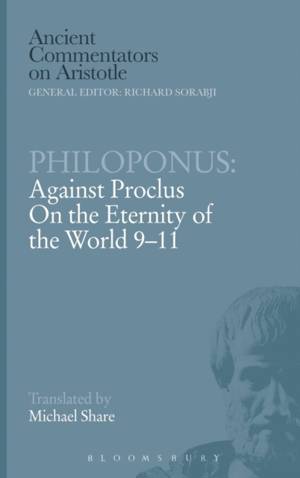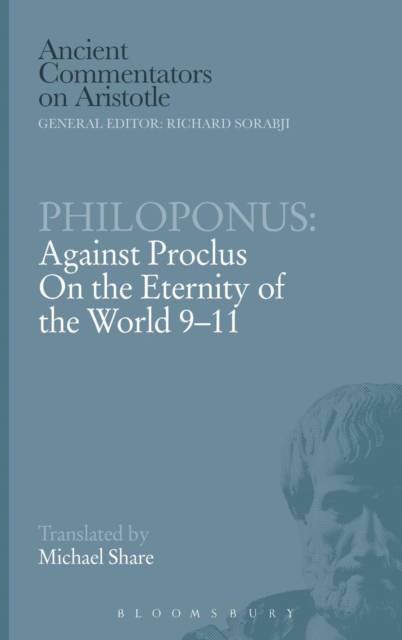
- Retrait gratuit dans votre magasin Club
- 7.000.000 titres dans notre catalogue
- Payer en toute sécurité
- Toujours un magasin près de chez vous
- Retrait gratuit dans votre magasin Club
- 7.000.000 titres dans notre catalogue
- Payer en toute sécurité
- Toujours un magasin près de chez vous
Philoponus: Against Proclus on the Eternity of the World 9-11
PhiloponusDescription
In one of the most original books of late antiquity, Philoponus argues for the Christian view that matter can be created by God out of nothing. It needs no prior matter for its creation. At the same time, Philoponus transforms Aristotle's conception of prime matter as an incorporeal 'something - I know not what' that serves as the ultimate subject for receiving extension and qualities. On the contrary, says Philoponus, the ultimate subject is extension. It is three-dimensional extension with its exact dimensions and any qualities unspecified. Moreover, such extension is the defining characteristic of body. Hence, so far from being incorporeal, it is body, and as well as being prime matter, it is form - the form that constitutes body. This uses, but entirely disrupts, Aristotle's conceptual apparatus. Finally, in Aristotle's scheme of categories, this extension is not to be classified under the second category of quantity, but under the first category of substance as a substantial quantity.
Spécifications
Parties prenantes
- Auteur(s) :
- Editeur:
Contenu
- Nombre de pages :
- 176
- Langue:
- Anglais
- Collection :
Caractéristiques
- EAN:
- 9780715638590
- Date de parution :
- 11-03-10
- Format:
- Livre relié
- Format numérique:
- Ongenaaid / garenloos gebonden
- Dimensions :
- 155 mm x 234 mm
- Poids :
- 430 g







